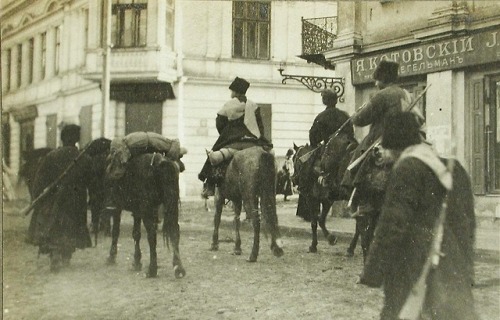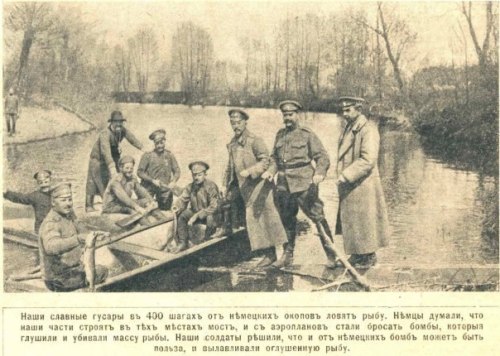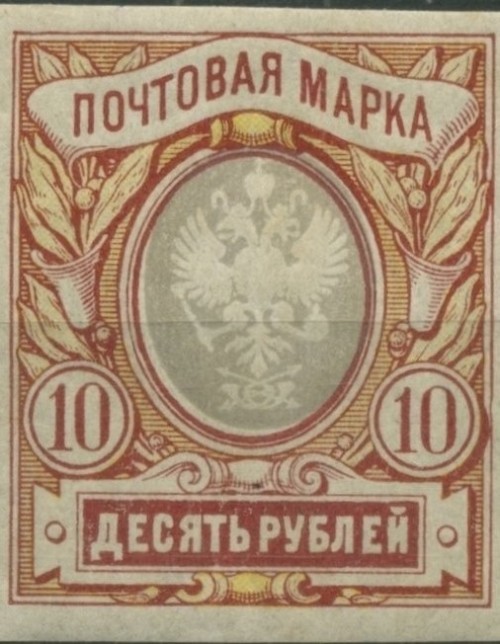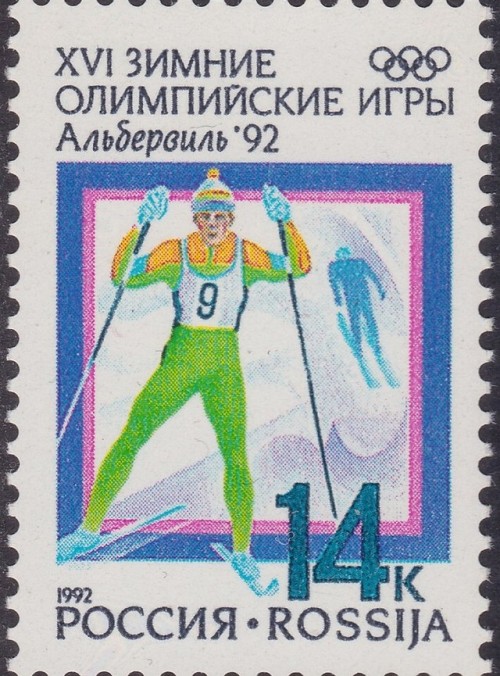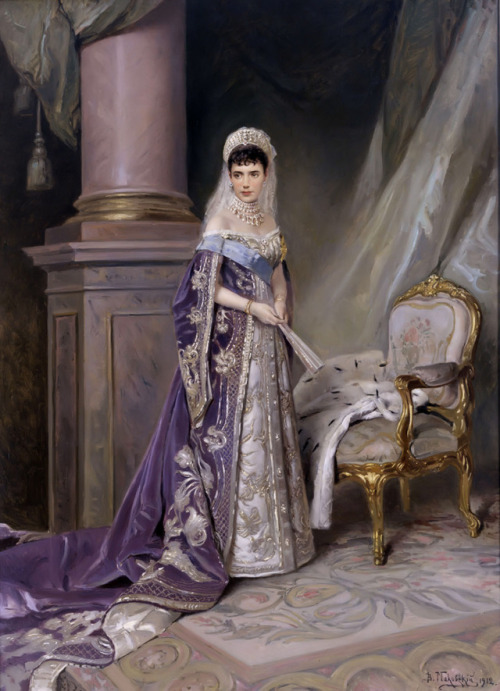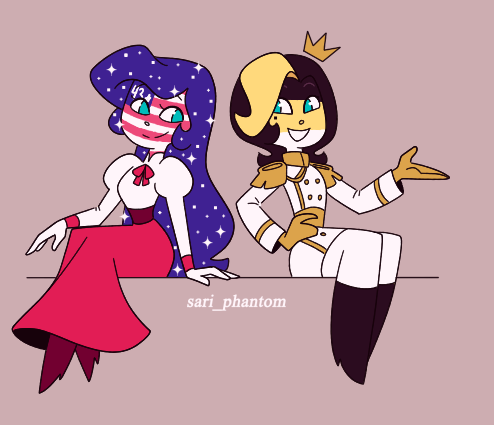#russian empire
Russian soldiers preparing chlorine cylinders for a gas attack on German positions near Ilukste, 1916
Post link
Our glorious Hussars, 400 meters from the German trenches catch fish. The Germans thought that our troops are building a bridge in those places. And from airplanes began to throw bombs, which muffled and killed a lot fish. Our soldiers have decided that the German bombs can be use, and caught the stunned fish.
Post link
Prior to the events leading up to, culminating in, and emerging from the Russian Revolutions, the Russian Empire was at one time the third largest empire in the history of the world - and of course, on the other side of Communism, the Russian Federation is the largest country in the world by area, by a considerable amount. This stamp enthusiast, Russian and Eurasian Studies minor, has grad plans to visit St. P in 2021 - С божьей помощью!
Stamp details:
Top left:
Issued on: December 10, 1957
From: Saint Petersburg, Russian Empire
MC #1
Top middle:
Issued on: March 14, 1917
From: Saint Petersburg, Russian Empire
MC #81
Top right:
Issued on: January 10, 1992
From: Moscow, Russian Federation
MC #220
Stamps on bottom:
Issued on: March 2, 2017
From: Moscow, Russian Federation
MC #BL240
Recognized as a sovereign state by the UN: Yes (since October 24, 1945)
Official name: Russian Federation; Росси́йская Федера́ция
Member of the Universal Postal Union: Yes (since July 1, 1875)
Post link
Vladimir Makovsky. Empress Maria Feodorovna.
1912. State Russian Museum, Saint Petersburg.
One of the most tragic figures of European royalty is the Empress Maria Feodorovna, widow of Alexander III, and mother of Nicholas II of Russia.
The revolution that toppled the Romanovs came as no surprise to many members of the imperial family. Only Nicholas and Alexandra seemed shocked by the Russian people’s decision to overthrow a regime that had epitomized inefficiency and corruption. Maria Feodorovna had one opportunity to see Nicholas II just after his abdication in early 1917. After a brief encounter with her son, the Dowager Empress headed towards one of the imperial villas in the Crimea. While revolution spread throughout Russia, Maria Feodorovna was joined at her seaside refuge by Grand Duke Alexander and Grand Duchess Xenia, their six sons, Prince Yussupov, his parents and his wife Grand Duchess Irina, daughter of Xenia and Alexander, and Grand Duchess Olga and her new husband Colonel Koulikovsky.
Nicholas and Alexandra, along with their children, were sent into exile in the provinces. The imperial couple were initially sent to Tobolsk, and later on moved to Yekaterinburg, near the Ural Mountains. They were all assassinated by Bolshevik guards in Yekaterinburg in July 1918. Grand Duke Michael was also apprehended and eventually executed while in prison during the summer of 1918. Not content with the massacre of these Romanovs, Bolsheviks went around the civil war torn country trying to execute all remaining Romanovs. The year 1918 also saw the assassination of the following Romanovs: Grand Duke Paul Alexandrovich, uncle of Nicholas II; Grand Duke Nicholas Constantinovich, grandson of Nicholas I; three children of Grand Duke Constantine Constantinovich: Ivan, Constantine and Igor; Grand Duke Dimitri Constantinovich, grandson of Nicholas I; Grand Dukes Nicholas Michaelovich, Serge Michaelovich and George Michaelovich, grandsons of Nicholas I; Grand Duchess Elizabeth, widow of Grand Duke Serge Alexandrovich and sister of Tsarina Alexandra Feodorovna. Prince Dimitri Pavlovich Paley, son of Grand Duke Paul Alexandrovich, was also assassinated. In all nineteen Romanovs were brutally executed by the blood-thirsty Bolsheviks. The imperial family never recovered from this tragedy.
Maria Feodorovna and her surviving family left Russia in the spring of 1919. They boarded the British ship HMS Marlborough and never again set foot in their country.
On September 28, 2006, Dowager Empress Maria Feodorovna was laid to rest beside her beloved husband, Czar Alexander III at the SS Peter and Paul Cathedral in Saint Petersburg.
Post link

Nogino village,Kostroma province (1900)

Peasant children,Russian Empire (1900s)

Cadets of the Omsk Cadet Corps drink tea with their parents and teachers in the garden,Russian Empire
To me, ReAme is the only kind of Russia x America shipping out there that I think works for me for a few reasons in my version:
- My version of Russia (Alexandra, formerly known as Nikita because apparently that’s a boy’s name) is in a relationship with my version of Germany (Margaret). I like RusAme, but I like RusGer better.
- Speaking of Russia, the relationship between her and America are strictly platonic. They’re good friend and nothing more.
- America hated USSR (Anna), blaming her for murdering not only Russian Empire, but also his sister (she had no idea that USSR and RE’s sister are the same person, and USSR is making sure that it stays that way to avoid indirectly hurting her even more.)
Post link
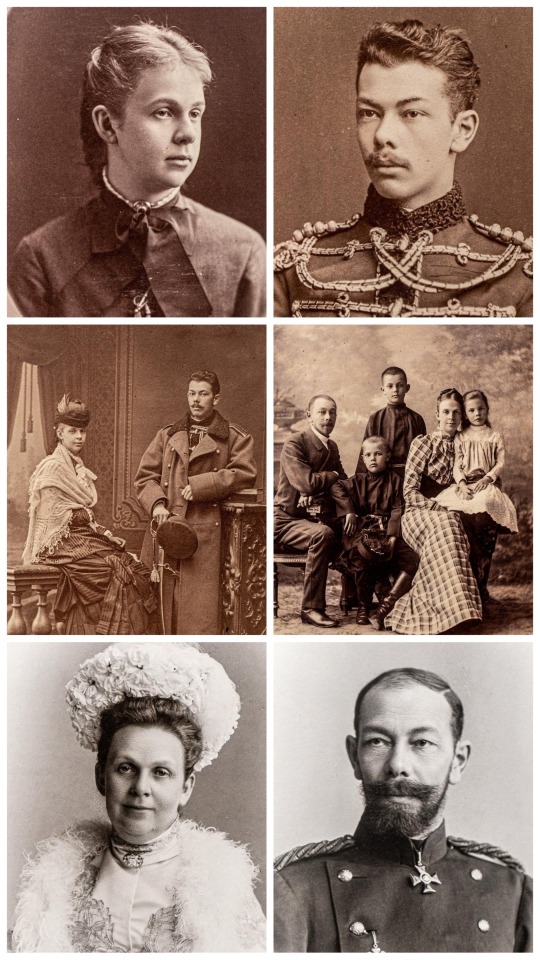
The Golitsyn family: princess Sofya Alexandrovna, prince Alexander Borisovich and their children.

Princess Golitsyna Sofya Alexandrovna in a Russian court dress

Tilsit date. Napoleon, Alexander I, Louise and Frederick William III of Prussia’ by Nikolas Gosse, 1807

“I feel like I’m entering the Fatherland,” Charlotte told the mourners as her carriage crossed the Russian border. The Cossack convoy that met her burst out “Hurrah!”, the princess told them in Russian: “Thank you, guys.” Then she turned to the Cossack colonel: “Please order them to shout again, I like it…” She sought to speak Russian with those courtiers who did not know foreign languages. However, despite the fact that her teacher was the poet Vasily Zhukovsky, Charlotte did not learn Russian until the end of her life.


«She never left the children brought up in her institutions afterwards, but helped them all her life, went into all the details that concerned them, and was a true mother to everyone. None of those who served her died in the palace except in her presence. She comforted everyone to the end and always closed the eyes of the dying. Doctors once told her that her retired lady-in-waiting, who lived on Vasilievsky Island, was suffering greatly from breast cancer, that it would be possible to save her, but she did not agree to the operation otherwise than if the Empress herself would be present during her production. “Well,” she said, “if only her recovery depends on it, then I will fulfill her wish.” She went to her and held her head during the whole operation.
She went into the smallest details about her establishments and not only supervised the upbringing of the children, but also did not forget to send them treats and give them all sorts of pleasures. One boy was forced to stay in bed for a long time due to illness; she brought him drawings, pencils and various things. With every courier she was informed about the state of his health — she was in Moscow at the time. When appointing honorary guardians, the choice was the strictest: she corresponded with each of them herself weekly, inquired about the pupils and pupils, about their behavior and health, and always gave wise humane advice … Everything was invented by a tender heart for the benefit, joy and peace of all who depend on her. It was not a dry, lifeless patronage, but maternal care. But her arrival at the institute was a real holiday. Maman, mam an, Mutterchen — could be heard from everywhere. Sometimes, at a big dinner, she would order dessert to be taken off and sent to some institute in turn. And she asked guardiansin her testament to remember that the first basis of all actions should be a boon!Babies abandoned by their mothers enjoyed her special attention. One day my father, who always accompanied her when she visited institutions, expressed surprise that she so tenderly kissed the little members of these unfortunate people, examined the laundry on the nurses and so on. “Ah!” she replied, “all these abandoned children are now mine and must find in me the care they are deprived of."»
(с) Maria Sergeevna Mukhanova, lady-in-waiting of Empress Elizabeth Alexeievna.






Princess Zinaida Ivanovna Yusupova, neeNaryshkina
« … the names of Countess Zavadovskaya, Ficquelmont, lady-in-waiting Princess Urusova and the young Naryshkina, later Princess Yusupova, were heard on everyone’s lips. All of them were written beauties, all of them were stars of the first magnitude of the St. Petersburg high society …»
© Count V.A. Sollogub
«Tall, thin, with a charming waist, with a completely sculpted head, she has beautiful black eyes, a very lively face with a cheerful expression that suits her so wonderfully…»
© Countess Dorothea «Dolly» Ficquelmont
«When I left Moscow, I hoped to be happy soon, linking my life with the life of Zeneida. But Maman, against whose will I would never dare to go, asked me to postpone the wedding. My chagrin was so great because of this delay that I almost fell ill.»
© Prince Boris Nikolaevich Yusupov, first husband of Zinaida.
«No less noticeable is the excessively prolonged and all-consuming flirtation of the charming Princess Yusupova with Gervais, an officer of the Chevalier Guard Regiment. She is of universal interest, because she is young in spirit, as well as in years, cheerful, naive, innocent. With amazing simplicity, she surrendered herself to the power of her feelings. It’s as if she doesn’t see the trap set in front of her and behaves at balls as if they are the only two in the whole world with Gervais…»
© Countess Dolly Ficquelmont
«My great-grandmother was a written beauty, lived merrily, had more than one adventure…
Even though she was an old woman, she remained a beauty and maintained a regal manner and posture. She was sitting rouged, perfumed, in a red wig and a bunch of pearl beads…»
© Felix Yusupov, great-grandson of Princess Zinaida Yusupova.


«Весёлая царица была Елисавет, поет и веселится, порядка только нет…»
«A cheerful tsarina Yelisaveta was, she sing and having fun, but there is no order…»
From the poem of Count Aleksey Konstantinovich Tolstoy.


«Princess Louise…she combined inexpressible charm and grace with restraint and tact, quite rare at the age of fourteen. In all her actions, the result of her mother’s worries, both respected and beloved, was visible. Her mind, soft and delicate, grasped with extreme rapidity everything that could decorate it, like a bee that knows how to get honey from the most poisonous plants. Her conversation reflected the freshness of her youth, and to this she added a great correctness of concepts.»
© Countess Varvara Nikolaevna Golovina about princess Louise of Baden, future Russian Empress Elizabeth Alexeievna.






«The Empress with the medical staff went around the wounded, provided first aid, tried in every possible way to ease the sufferings of the sick, despite the fact that she herself had a damaged arm above the elbow and she wore just a dress. An officer’s greatcoat was thrown over the shoulders of the tsarina, in which she walked along the crashed train…»
A. Myasnikov about Empress Maria Feodorovna on the day of the tragedy at the Borki station.
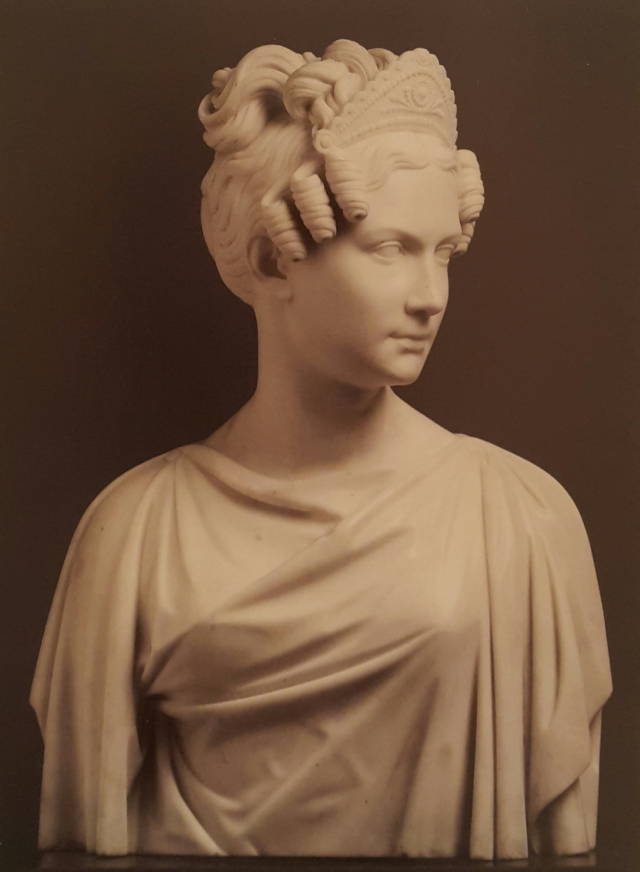
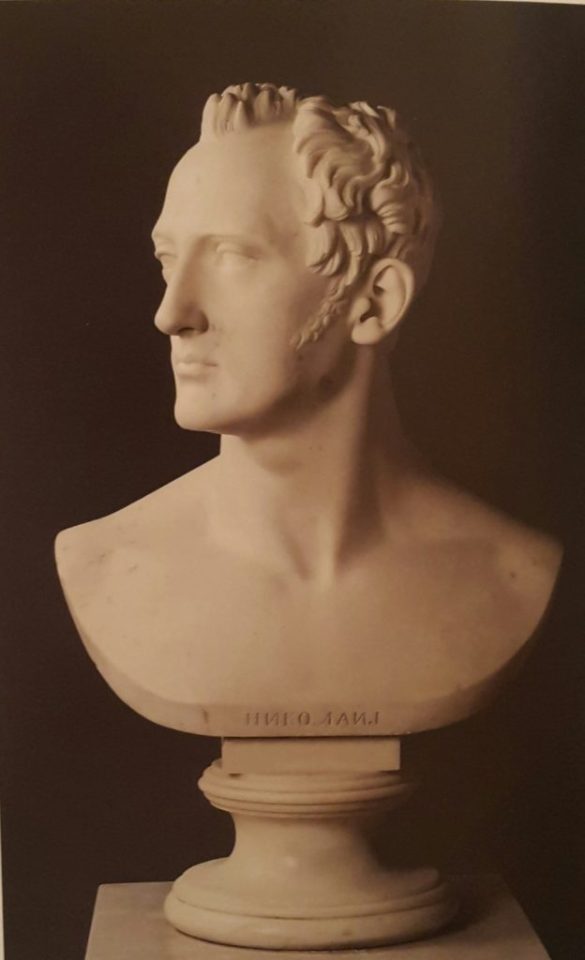
Busts of Emperor Nicholas I of Russia and Empress Alexandra Feodorovna


Grand Duke Nicholas Mikhailovich of Russia to Maria Feodorovna, «Various facts from November 12 to November 19, 1916»
Count Gudovich told me that his niece, the little Countess Hendrikova, told him that two ladies, i.e., A.F. (Alexandra Feodorovna) and Anya (Anna Vyrubova), had notebooks where the names of people of all classes were written alphabetically, and that in these notebooks they usually looked for people fit to be ministers. Admit that this is pure madness. There is only one remedy, Sandro and Pavel do not mind, it is for the closest, for you and your children to take the initiative to conduct a medical consultation of all our celebrities from a medical point of view, and then send them to a remote sanatorium, with or without Vyrubova, to undergo serious treatment. Otherwise, be prepared for any accidents. Tell that to Sandro-because that’s my firm opinion.
Grand Duke Nicholas Mikhailovich of Russia to Maria Feodorovna, «Various facts from December 17 to December 22, 1916»
The balding man writing to you has been thinking a lot, spending sleepless nights, running around the empty St. Petersburg embankments at dawn — and now he tells you — never look for the names of the brave souls who performed this act of civic courage, high patriotism and deliverance*. The word is silver, and silence is gold!
Madame (Alexandra Feodorovna) is madder than ever. On the night of the 19th, after the autopsy of the corpse, the order came to transport… the body of the insignificant to the emperor’s palace!!!
Two more appointments to positions took place under the influence of the murdered man …
Madame is getting more and more in charge of drowning Nicky… And time passes, gossip intensifies, the general situation inspires fears.
I’m putting the same dilemma before you again. After the hypnotist, it is necessary to try to neutralize A.F., while she is hypnotized. By all means, it is necessary to send her as far away as possible, either to a sanatorium or to a monastery. We are talking about saving the throne - not the dynasty, which is still strong, but the present sovereign. Otherwise it will be too late. … All Russia knows that the late Rasputin and A.F. are the same. If the first one is killed, the second one should disappear. The general peace of mind depends on it. …
*about Rasputin’s murder


«Oh, they (OTMA) were lovely, and terribly sweet, far more beautiful than their photographs show. I was crackers about Marie, and was determined to marry her. She was absolutely lovely. I keep her photograph in my bedroom- always have.»
Mountbatten: Hero of Our Time by Richard Hough.


«Oh, they (OTMA) were lovely, and terribly sweet, far more beautiful than their photographs show. I was crackers about Marie, and was determined to marry her. She was absolutely lovely. I keep her photograph in my bedroom- always have.»
Mountbatten: Hero of Our Time by Richard Hough.




«She (Maria) was strikingly similar to her father, and her gaze resembled his scary gaze. The daughter bravely endured her father’s gaze. He turned pale, his cheeks trembled, and his eyes became even fiercer, his daughter answered him with the same look. Everything turned pale and trembled around, the ladies-in-waiting and the generals did not dare to breathe from this cannibal duel with their eyes… Nicholas got up, he felt that he has met his match.»
My Past and Thoughts by Alexander Herzen


«I have the honor to be Russian, I am proud of it, I will defend my homeland with my tongue, quill, and sword - as long as I have enough life…»
© Catherine the Great


